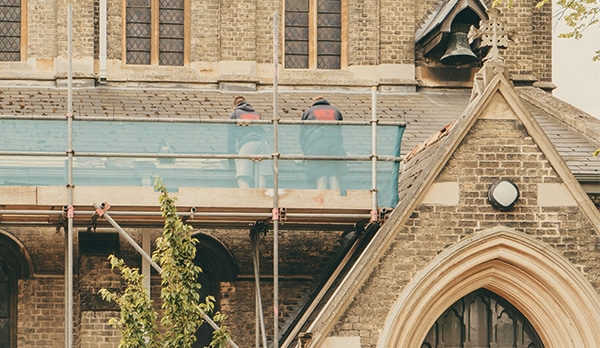Chancel Repair Liability – hundreds of years old and still applicable

What is Chancel Repair Liability?
The liability could kick in if your property lies within a parish containing a medieval church built before 1536. If your home is indeed affected by chancel repair liability, you will be required to contribute towards the cost of any repairs to the chancel (the area of the church surrounding the altar) of the nearby medieval church in question.
Chancel repairs can be costly, as Mr and Mrs Wallbank famously discovered in 1970 when they received a demand from their parish’s 13th century church to fund repairs stretching to the hundreds of thousands of pounds. After being embroiled in decades long legal proceedings to avoid payment, the couple lost their battle and were ultimately forced to sell their property to cover the enormous repair bill and hefty legal costs. The case comes as an important lesson and understandably, the potential for chancel repair liability is something any homebuyer should be wary of.
Managing the Risk
Before 2013, as in the Wallbank’s situation, chancel repair liability had an ‘overriding’ status. This meant that the liability was binding on any purchaser of an affected property - even if unaware of its existence. Churches did not necessarily have to register the liability to bind homeowners, meaning inspection of title deeds by a buyer’s solicitor was not always enough to establish whether the liability applied to a particular property.
As a result of the potential risks and difficulty in determining the existence of the liability, a buyer’s solicitor would conduct a ‘chancel repair search’ which reveals the likelihood of chancel repair liability affecting the property. Alternatively, solicitors could protect buyers against the costs of potential chancel repair liability through indemnity insurance.
On 13 October 2013, chancel repair liability lost its ‘overriding status’ and fortunately all churches were required to register any liability for repairs to protect their right. This meant that if a church had not registered liability before a particular property is transferred for ‘valuable consideration’, it could not demand a contribution from the new homeowner.
Nonetheless, this change in the law does not provide complete peace of mind to property owners. Of course, any property which has already had a notice registered on the title in respect of chancel repair liability will be affected by the ancient liability. Moreover, homeowners who continue to own a property that they purchased before 13 October 2013 or who acquired a property for no valuable consideration will continue to run the risk of a church registering liability on the title to the property.
For this reason, prudent solicitors continue to carry out either a chancel search or recommend that insurance is taken out in respect of the liability – the cost of which is minimal compared to the potential risks surrounding chancel repair liability.